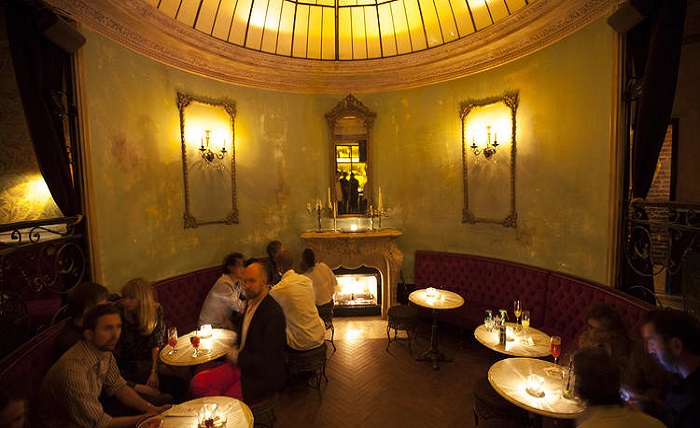Pour Vous: Exploring a World of Elegance and Expression

Introduction
The phrase “pour vous,” translating to “for you” in English, carries a weight of elegance and personal touch in the French language. This blog post delves into how these two simple words can influence and enhance different sectors like fashion, cinema, dining, and more, each uniquely tailored to resonate on a personal level.
The Origin of “Pour Vous”
The origin of “pour vous” lies deep within the French language, epitomizing the culture’s focus on politeness and personalization. This section explores its linguistic roots and how it reflects the intimate relationship between French speakers and their audience or guests.
Pour Vous in French Cinema
French cinema often utilizes the phrase “pour vous” to create a direct connection with the audience, making cinematic experiences deeply personal. This part discusses how directors and scriptwriters use the term to engage viewers emotionally and intellectually.
Luxury Brands and “Pour Vous”
Luxury branding thrives on creating exclusive experiences “pour vous.” Here, we examine how top fashion houses incorporate this concept into their marketing strategies to allure consumers seeking bespoke services and products.
Personalized Services: The “Pour Vous” Experience
From tailor-made suits to custom-designed jewelry, personalized services epitomize the “pour vous” ethos. This section highlights businesses that excel in creating unique customer experiences.
Pour Vous in Culinary Arts
Gastronomy also embraces the “pour vous” philosophy, especially in fine dining where dishes are often crafted to meet individual tastes. Learn about chefs and restaurants that specialize in customized culinary experiences.
Event Planning with a “Pour Vous” Touch
Event planners often use “pour vous” as a strategy to design occasions that reflect the host’s personality and guest’s comforts. This subsection discusses how bespoke events are curated.
Digital Media and Personalization
In the digital world, “pour vous” transforms into personalized user experiences in apps and websites. This section explores how tech companies use data to tailor content and services specifically for you.
Pour Vous in Art Galleries and Exhibitions
Art galleries and exhibitions often curate pieces with the “pour vous” concept, aiming to resonate personally with visitors. Here, we look at how curators design exhibits that speak directly to individual viewers.
Wedding Industry: Crafting Your Special Day “Pour Vous”
The wedding industry thrives on customization, making every aspect of the day special “pour vous.” This part discusses how various service providers tailor their offerings to match the couple’s unique preferences.
Fashion Shows: The Runway “Pour Vous”
Fashion shows are increasingly becoming personalized experiences. Designers are crafting collections that resonate on a personal level with their audience, ensuring that every piece has something “pour vous.”
Gift-Giving “Pour Vous”
The art of gift-giving often incorporates the “pour vous” principle to enhance the personal connection between giver and receiver. This subsection explores how gifts can be personalized.
Pour Vous in Everyday Communication
Lastly, we look at how “pour vous” can transform everyday interactions into meaningful connections, whether in professional settings or personal relationships.
Conclusion
“Pour vous” is more than just a phrase; it’s a philosophy that enriches every aspect of life and industry it touches. By embracing this personalized approach, industries across the board can create deeper, more meaningful interactions and experiences that truly resonate with individuals. The essence of “pour vous” lies in its ability to make everything feel specially designed just for you, enhancing both the beauty and significance of personal connections.
FAQs
Q1: How can businesses effectively integrate the “pour vous” concept into their customer service?
A1: Businesses can integrate “pour vous” by focusing on customer preferences and feedback, offering tailored solutions, and maintaining a personal touch in communications.
Q2: Can “pour vous” be seen as a cultural marker in French society?
A2: Absolutely, “pour vous” reflects the French emphasis on personal care, politeness, and tailored interactions, making it a significant cultural marker.
Q3: Are there any industries where “pour vous” might not be applicable?
A3: While most industries can benefit from personalization, sectors that rely heavily on mass production and standardization might find it challenging to implement “pour vous” fully.
Q4: How do digital platforms utilize “pour vous” in their user experience?
A4: Digital platforms use algorithms to analyze user behavior and preferences to deliver personalized content, recommendations, and advertisements, all tailored “pour vous.”
Q5: What are some challenges associated with implementing the “pour vous” approach in large scale businesses?
A5: Challenges include maintaining a high level of personalization at scale, ensuring privacy in data usage, and balancing between automated and human elements in customer interactions.



